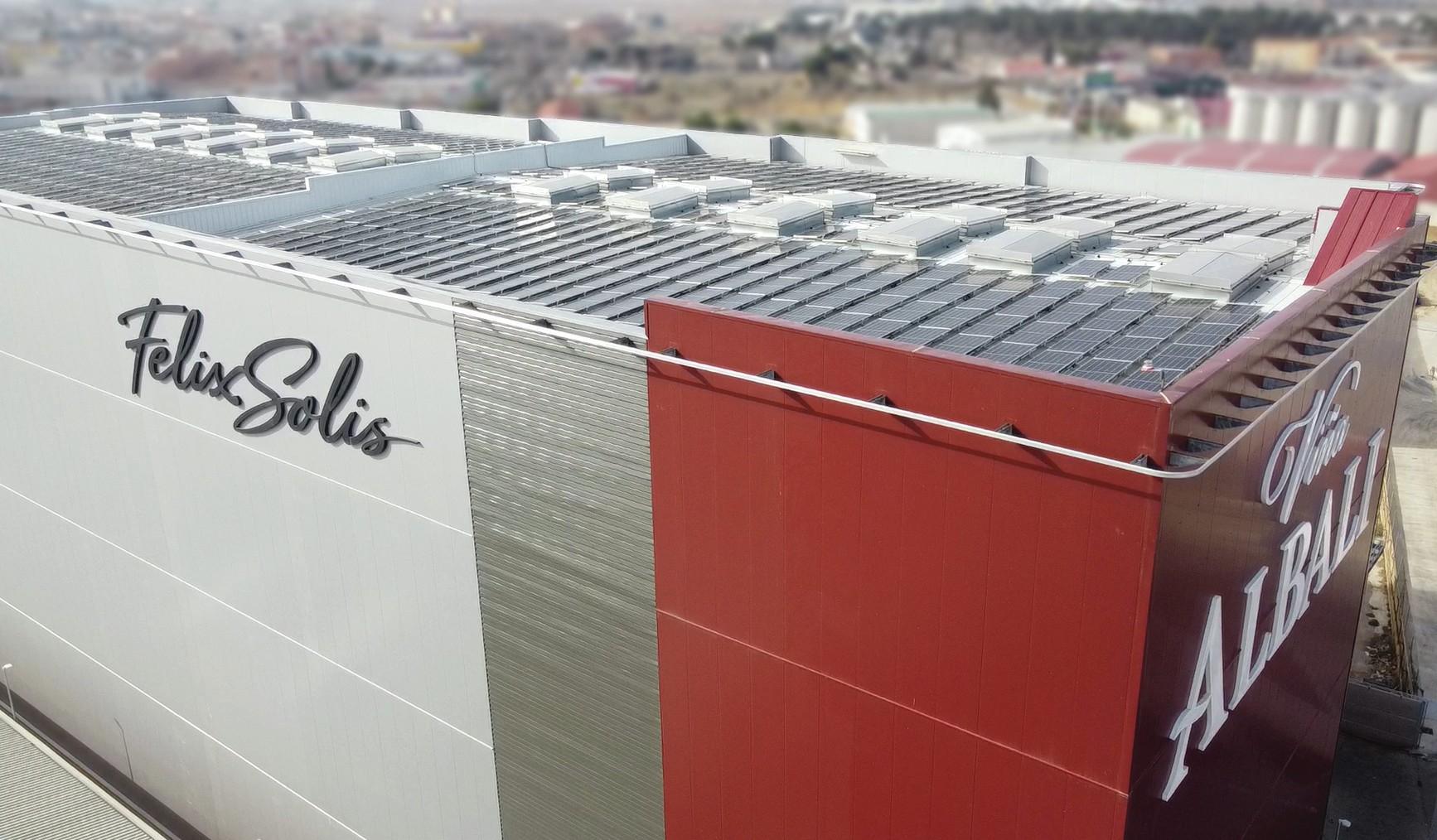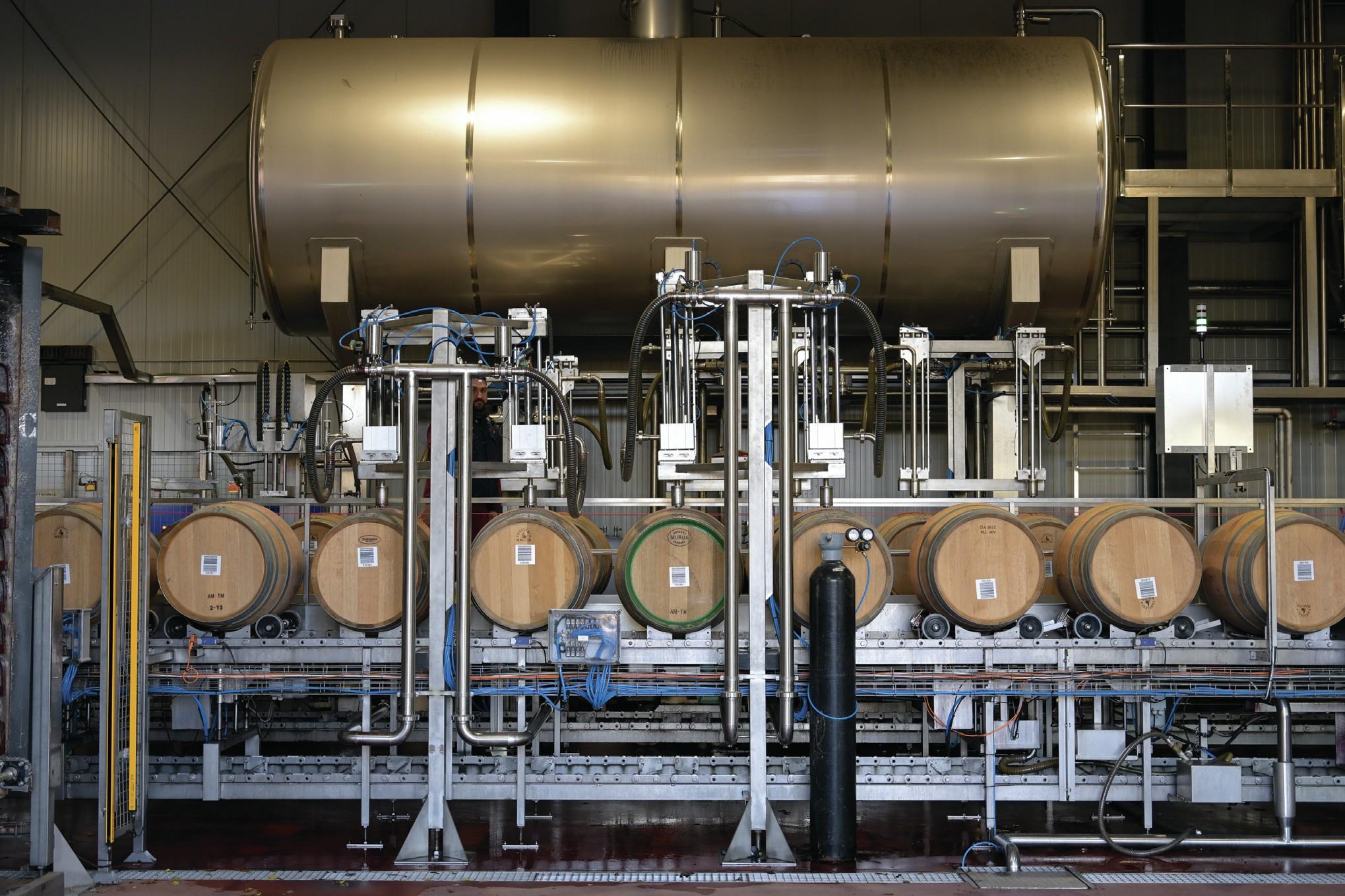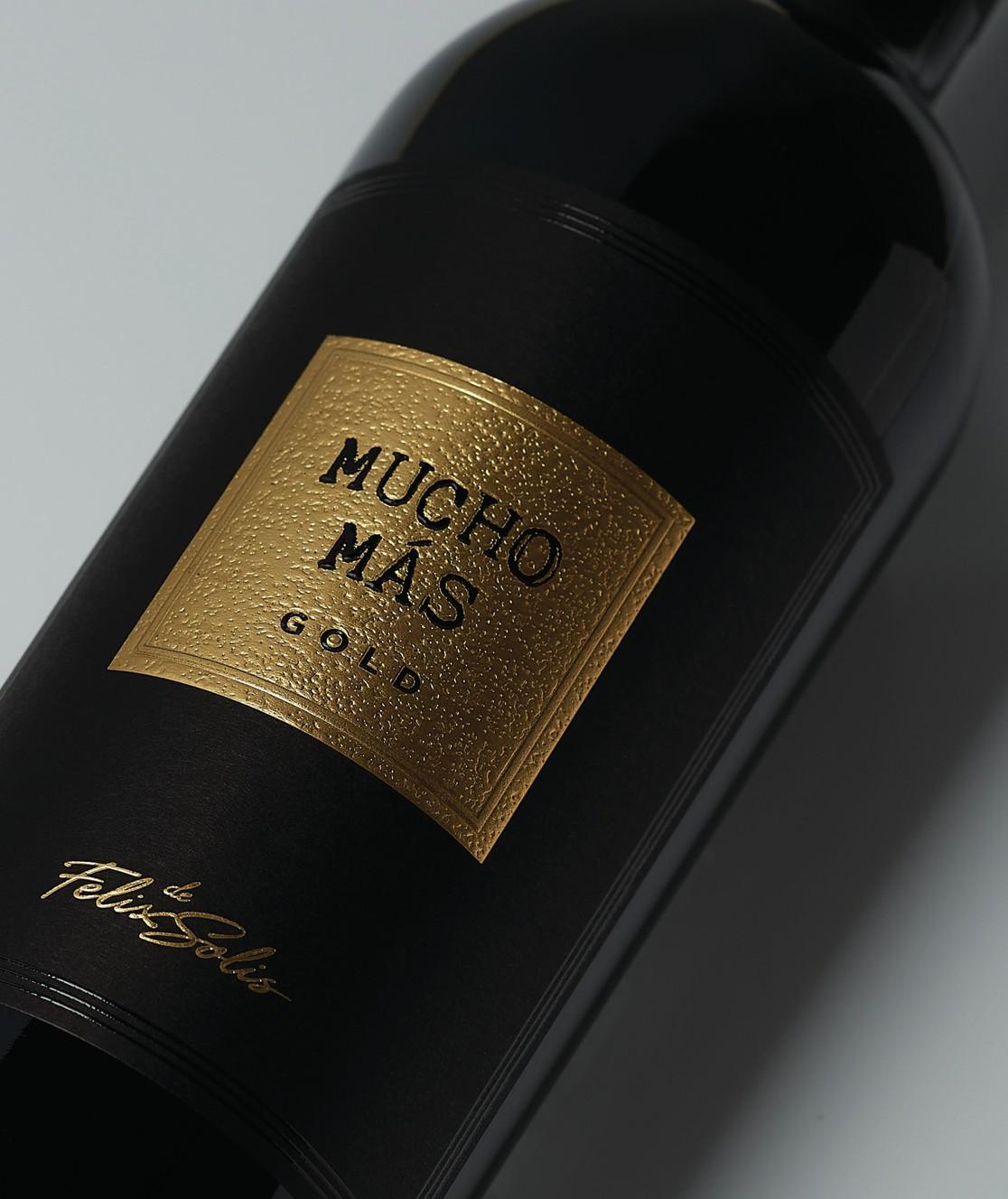Félix Solís Avantis: investing in the future
Forward-thinking Félix Solís Avantis is driving sustainable change in both the organic and the no- and low-alcohol categories.

When a company has been a key engine of change in the wine world for more than 60 years, keeping that momentum going can be a challenge in itself. However, for leading Spanish wine group Félix Solís Avantis, propelling the business into the future is always front-of mind. The family-owned firm, which includes the Viña Albali, Mucho Más and Pagos del Rey brands among its broad portfolio, has taken great strides this year to ensure it continues its avant-garde approach to winemaking.
One of its biggest investments to date has been the €70 million that Félix Solís Avantis spent on constructing the world’s most advanced barrel cellar, which is fully automated and powered by solar energy. The Spanish wine group cut the ribbon on the new facility, which is based at the company’s headquarters in Valdepeñas, in March 2023. The sophisticated building, which can hold as many as 130,000 barrels, is run entirely using robotics, with everything from steam cleaning to moving the barrels done by machine. Incredibly, the entire operation requires only two people to manage it. Furthermore, the facility features 678 photovoltaic cells, which produce enough electricity to ensure the building is selfsufficient in terms of energy.
“For the last three years, following our cleaner energy policy, more than 95% of the electricity consumption across each of the wineries has been renewable,” says Lola Poza Rodríguez, head of quality and environmental management, Félix Solís.
Green Spain
Félix Solís Avantis continues to take steps towards its sustainability goals. One of the key moves in this direction is the audit on energy carried out in 2020, with the aim of promoting its sustainable transformation, reducing its environmental impact and benefiting its natural environment.
The company obtains its entire electricity supply from clean and renewable energy, and reduces its water consumption through more efficient technologies. In recent years, it has already managed to reduce emissions by 48%, a positive advancement resulting from the efforts of every winery and team in the company.
The company has also installed 678 solar panels on its new automated barrel cellar – a milestone achievement – and is working to install new solar panels to produce 25% of its total electricity needs in the main facility, located in Valdepeñas, over the next few years.
Changes are also being implemented in the packaging of its wines. Between 2019 and 2020, glass consumption was cut by 1,650 tonnes by reducing the weight of the bottles used.
Cardboard boxes made entirely from recycled paper are already in use, as part of a plan to reduce plastics.
Along these same lines, Félix Solís Avantis continues to work with suppliers to adapt to the new regulations on plastic containers and bottles that, starting in 2024, must have the cap attached to the container. The objective is to prevent these caps from being lost, and thus make their recycling easier. Taking advantage of this change, the composition of the stoppers will change to plant material (sugar cane), as is already used in some of its wines.
“We are currently incorporating solar panels into our new buildings that are being built in the main winery of Valdepeñas, such as the new barrel warehouse, and the new bottle storage facility that is currently under construction,” she adds.
In addition to this, the company is building a solar farm with more than 6,000 solar panels “to produce 25% of the total electricity consumed by Félix Solís by the end of 2024”, explains Rodríguez.

Category leaders
The producer has taken the sub-£7 price bracket by storm with its Mucho Más and The Guv’nor brands. Since launching only six years ago, Mucho Más (pictured right) has gone from strength to strength, reaching 16 million bottles in sales this year, up from 11m bottles in 2022. The Mucho Más range continues to hook consumers with its easy-drinking style, and now includes Black Edition (a blend of Tempranillo and Syrah); Gold edition (a single varietal Tempranillo aged in American oak and the top wine in the range); Sparkling (a Viura- and Chardonnay-based fizz); and Rosé (made from Garnacha, Bobal and Tempranillo).
Two further areas in which Félix Solís has pushed the envelope in recent years are the increasingly popular categories of organic and no-and-low. In 2017, the company launched its 100% organic Rock & Roots range, featuring a Tempranillo and a Verdejo. The same year, it added three organic wines – a Verdejo, a Tempranillo (pictured far right) and a rosé – to its Viña Albali range, all launching with the 2016 vintage and pitched at the £5-£6 price bracket in the UK off-trade. Six years on from launch, and Félix Solís’ organic wines have seen impressive growth, with sales up +42% in 2023.

Meanwhile, global demand for lower alcohol and alcohol-free wines continues to soar, with consumers seeking out lighter expressions of their favourite drinks. Félix Solís added an alcohol-free expression to its Mucho Más range in 2017, and the Spanish group has since racked up a host of accolades and awards for its alcohol-free (less than 0.5% ABV) wines, including taking home two Silver medals in the drinks business’ Global No and Low Alcohol Wine Masters competition this year.

The medals were awarded for Viña Albali Sparkling Low Alcohol White 2021 and Viña Albali Sparkling Low Alcohol Rosé. Triumphing in a notoriously challenging category, Félix Solís Avantis continues to strive for quality alcohol-free wines that do not compromise on flavour.

Proof of the success of the company’s varied innovations is in the pudding, with financials from 2021 highlighting Félix Solís Avantis’ profitability, which exceeds the average of the wider Spanish wine industry. The company’s latest EBITDA (used by analysts to determine a company’s profitability by comparing its revenue to its earnings) is 13.7%, compared with 12.2% for the Spanish wine industry as a whole. Félix Solís Avantis’ ROE (return on equity) stands at 10%, compared with 6.8% for the wider industry, while its ROS (return on sales) is an impressive 8.3%, in contrast with only 5% for the broader Spanish wine trade.

“Félix Solís continues to grow sustainably by investing in efficiency, wine quality and the planet,” says the company’s UK managing director, Richard Cochrane. “These are the drivers behind these robust company financials, which help provide our customers with award-winning wines and reliable supply.”
As for what the future holds, Félix Solís remains firmly in the driver ’s seat and looks set to hit the accelerator in 2024. It helps that the company has already started using byproduct waste left over from pruning its vines to produce biodiesel; just one more innovation to help fuel its ambitions, which will be laid out in detail on release of the company’s Sustainability Report next year.
Related news
Timeless elegance: Crémant de Loire’s leading light
Double Dutch: ‘Taiwan’s tonic comeback is the perfect moment to reimagine the G&T’
